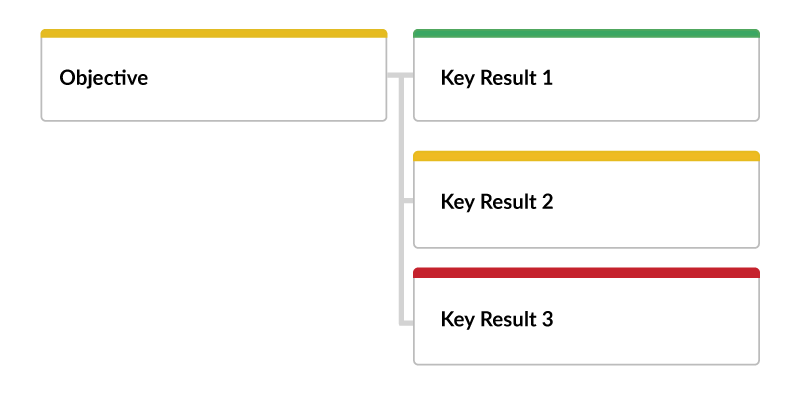
OKR Implementation with CrossLead
At CrossLead, we believe the OKR philosophy can drive common purpose

At CrossLead, we believe the OKR philosophy can drive common purpose across silos, empower self-organizing teams, and create a culture of organizational learning and accountability.
As leaders across the globe pivot towards OKRs as a new way of managing enterprise performance, we encourage them to keep these principles in mind:
- OKRs should be transparent across the enterprise
- OKRs should be aligned but not cascaded
- KRs should be up-to-date and drive prioritization conversation
- OKRs should be central to daily work
- If you are accomplishing 100% of your OKRs, you are not
- challenging yourself enough
OKR Implementation with CrossLead
Our approach to implementing OKRs is team-centric. At the same time, we support executives in developing individual leadership competencies to reinforce OKRs, and our primary focus is shaping executives to elevate the performance of their teams. The OKR program will follow three phases:
- Part 1: Launch a CrossLead Diagnostic Assessment to identify the most significant opportunities for misalignment
- Part 2: Train the organization on OKRs best practices.
- Part 3: Advise senior leadership on building operating mechanisms to reinforce OKRs

At CrossLead, we believe the OKR philosophy can drive common purpose across silos, empower self-organizing teams, and create a culture of organizational learning and accountability.
As leaders across the globe pivot towards OKRs as a new way of managing enterprise performance, we encourage them to keep these principles in mind:
- OKRs should be transparent across the enterprise
- OKRs should be aligned but not cascaded
- KRs should be up-to-date and drive prioritization conversation
- OKRs should be central to daily work
- If you are accomplishing 100% of your OKRs, you are not
- challenging yourself enough
